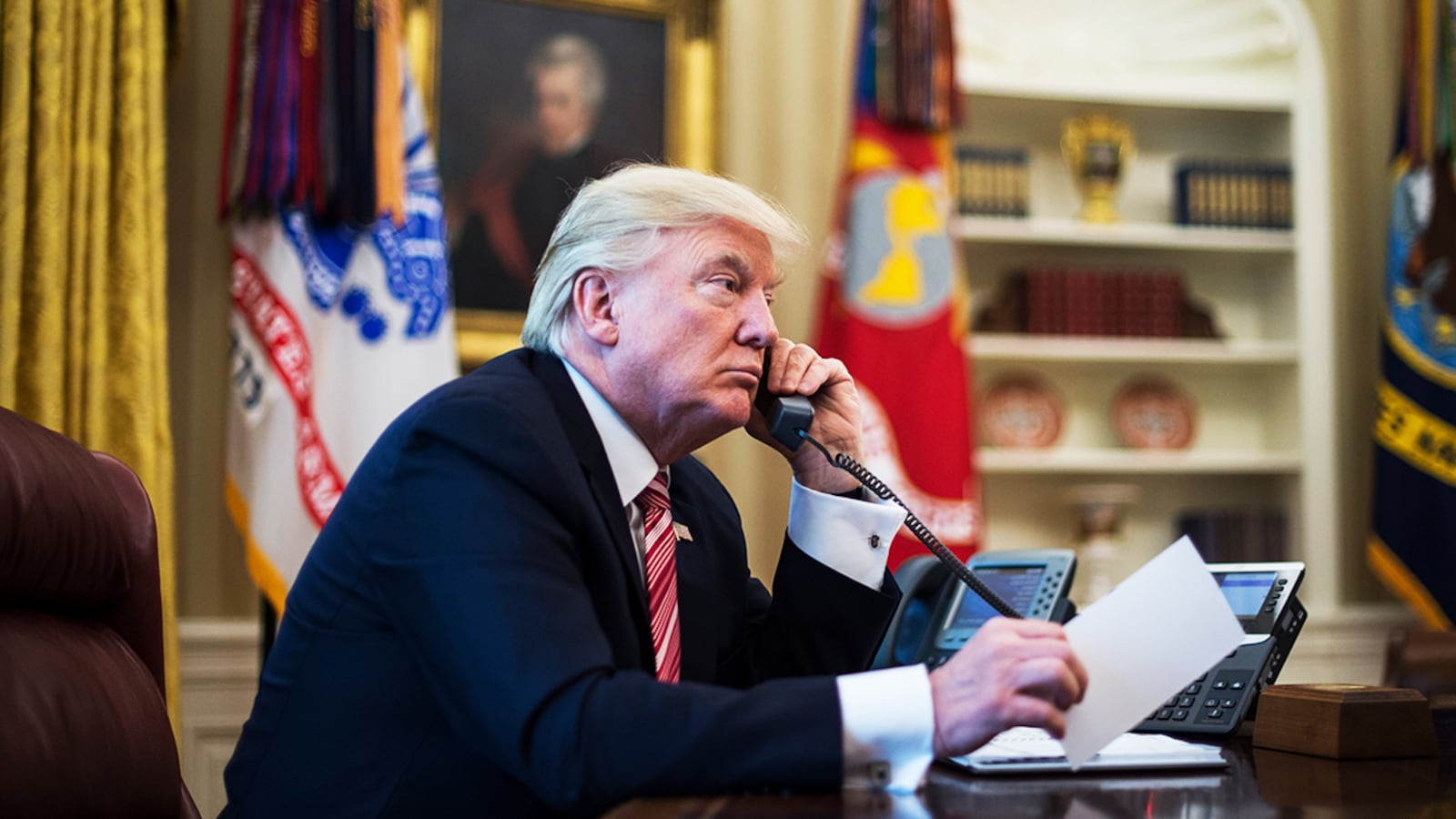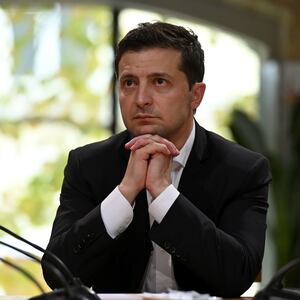If President Trump believes a rough transcript of him telling anecdotes about the Miss Universe pageant to foreign leaders will distract the impeachment inquiry, it looks like he’s sorely mistaken.
Since last week, Trump and his White House staff have signaled they were ready to unveil this week a transcript of the president’s first call with Ukraine President Volodymyr Zelensky. Trump had conspicuously previewed the move multiple times, boasting of his alleged transparency and supposedly exculpatory new information.
On Friday, we found out why. In a transcript of the searingly banal conversation, the two men discuss almost nothing of substance, with Zelensky boasting about the quality of the food in Ukraine and Trump saying he met some “great people” from the country when he owned the Miss Universe pageant.
The only hint of the coming storm is where Trump is quoted as saying: “When you’re settled in and ready, I’d like to invite you to the White House. We’ll have a lot of things to talk about.”
The call, made prior to his now-infamous, scandalous “quid pro quo” conversation in July, was infinitely normal. The kind of routine congratulations that used to be routine before Trump moved into the Oval Office. “It’ll be something the president can play with for a few days… at least [after its release],” one senior administration official noted, candidly.
The one memorable part of the transcript comes after Zelensky invites Trump to attend his inauguration ceremony. The Ukrainian president tells his U.S. counterpart: “There’s no word that can describe our wonderful country. How nice, warm, and friendly our people are, how tasty and delicious our food is, and how wonderful Ukraine is.”
Trump, clearly scrabbling around for something to say, responds: “When I owned Miss Universe, they always had great people. Ukraine was always very well represented.”
Outside of Trumpworld, and even by many within, the release was widely interpreted as a barely veiled attempt at distraction and an effort to change the subject from impeachment and scandal to something more innocuous.
“I will be releasing the transcript of the first, and therefore more important, phone call with the Ukrainian President before week’s end!” Trump posted to Twitter on Tuesday morning.
The tenor and tone of the April 21 call had been previously described in Lt Col. Alexander Vindman’s testimony before House impeachment investigators. Vindman, who was on the call, described it as “positive.”
“The President expressed his desire to work with President Zelensky and extended an invitation to visit the White House,” he testified, according to transcripts released last week.
Later in the deposition, Vindman was asked by the House majority’s counsel to compare the call to the now infamous conversation Trump had with Zelensky in July.
“April 21st [call] was complementary, positive,” Vindman said. “He repeatedly praised President Zelensky for the significant landslide victory he had achieved. And, in general, I think there was, you know, probably a little bit of humor exchanged.”
By July 25, Vindman said the tone had changed, saying Trump spoke “lower” and the “atmospherics and the tone were not the same.”
Vindman said that in the intervening months he had spoken to Russia’s Vladmir Putin as well as Hungary’s Viktor Orban, both well known to have adversarial relationships with Ukraine.
Vindman said he could remember if Ukraine came up in the conversation with Putin, but confirmed that Trump had spoken to Orban about Ukraine. And he did not have positive things to say.
“[W]hat I, I guess, found, You know, interesting and troubling about President Orban is, at this point, President Zelensky had had a number of positive interactions with world leaders,” Vindman said. “You know, again, in my role as a coordinating interagency policy, I get reports from colleagues from foreign — representatives of foreign capitals telling me about the interactions they had. And in aII cases, they were positive. And, frankly, Victor Orban’s was in great contrast to that.”
Vindman said that while Bolton was opposed to the meeting with Orban, Mulvaney helped set it up.
Asked why Bolton didn’t want Trump to meet with Orban, Vindman answered, “According to my recollection, and this would have been probably — most certainly as a result of a discussion with Dr. HilI, the kind of information that President Orban was communicating was not just inaccurate, but it also would undermine efforts to organize our national security policy in a more constructive manner.”
“Toward Ukraine?” Vindman was asked.
“Toward Ukraine,” he answered.









